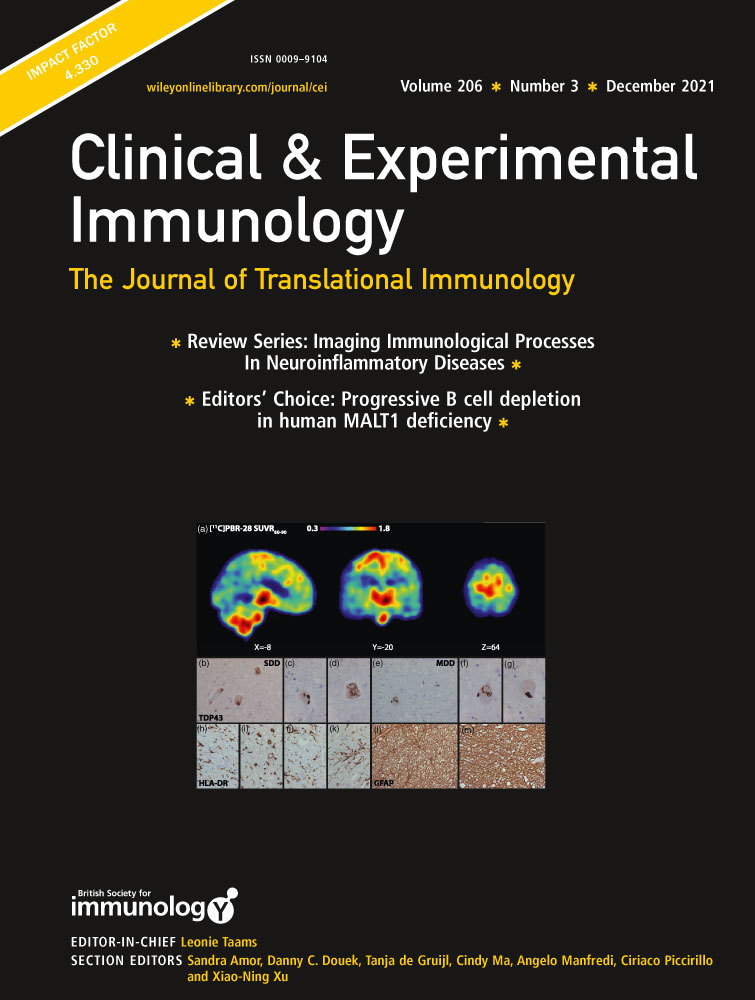Complexities of applying nasal tolerance induction as a therapy for ongoing relapsing experimental autoimmune encephalomyelitis (EAE) in DA rats
Abstract
EAE is an autoimmune disease of the central nervous system (CNS) that serves as an experimental model for the human inflammatory demyelinating disease multiple sclerosis (MS). Antigen-based immunotherapy including soluble antigen administration via feeding has been shown to be successful in treating EAE in rodents. In the present study, we explore nasal administration of small amounts of myelin basic protein (MBP) as a potential means of treatment of protracted, relapsing EAE (PR-EAE) in a novel DA rat system. We found that nasal administration of MBP prevented EAE induced with whole spinal cord homogenate + Freund's incomplete adjuvant (FIA), and strongly down-regulated levels of MBP-reactive interferon-gamma (IFN-γ)-secreting Th1-like cells. However, in rats with ongoing PR-EAE receiving the same regimen of MBP, a trend of aggravated disease was recorded, in conjunction with augmented levels of MBP-reactive IFN-γ-secreting Th1-like splenocytes during the acute phase of EAE. These data have implications for the clinical application of nasal tolerance to autoimmune diseases.




